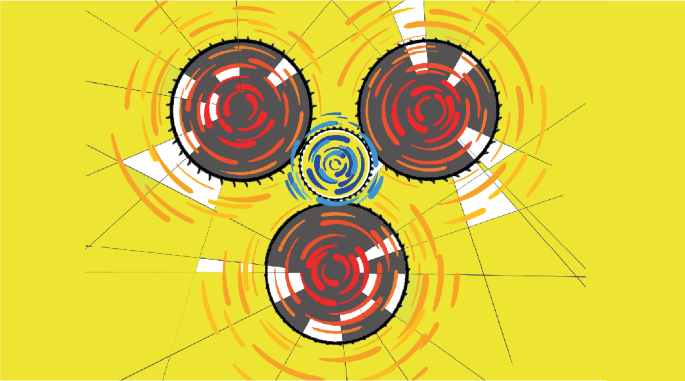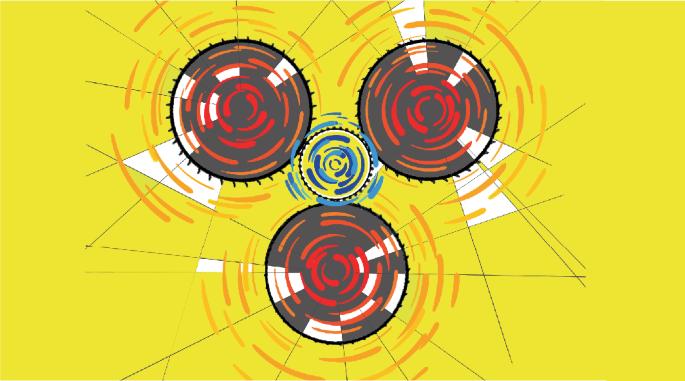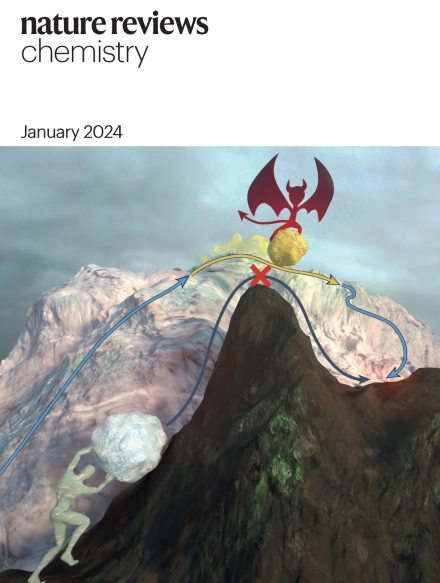关于锕系元素化合物的芳香性
IF 38.1
1区 化学
Q1 CHEMISTRY, MULTIDISCIPLINARY
引用次数: 0
摘要
自 2010 年代末以来,随着新型锕系元素络合物和簇的合成,锕系元素化学得到了蓬勃发展。在理论方面,有一系列工具可用于表征这些含重元素的化合物,但在使用不同工具评估芳香性方面的差异导致了争议。在本《视角》中,我们将以锕系元素为重点,探讨有关金属化合物芳香性争议的起源。锕系元素的芳香性之所以重要,并不是因为这些分子数量众多或在催化或反应性方面具有特殊作用,而是因为这一课题将芳香性理论推向了极限。由于其参考独立性,芳香性的磁性标准一直是表征金属化合物(包括锕系元素化合物)芳香性的最普遍选择。通过对几个案例的研究,我们说明了为什么这一标准可能会误导金属物种,并解释了与锕系元素化合物有关的发现如何重塑芳香性理论,不仅是锕系元素,也许还有众所周知的碳氢化合物。本文章由计算机程序翻译,如有差异,请以英文原文为准。


On the aromaticity of actinide compounds
The chemistry of actinides has flourished since the late 2010s with the synthesis of new actinide complexes and clusters. On the theoretical side, a range of tools is available for the characterization of these heavy element-containing compounds, but discrepancies in the assessment of aromaticity using different tools have led to controversies. In this Perspective, we examine the origin of controversies relating to the aromaticity of metallic compounds, with a focus on actinides. The aromaticity of actinides is important, not because these molecules are numerous or have a special role in catalysis or reactivity, but because this topic pushes theories of aromaticity to their limits. Owing to its reference independence, the magnetic criterion of aromaticity has been the most popular choice for the characterization of the aromaticity of metallic compounds, including actinide compounds. Through examination of several case studies, we show why this criterion might be misleading for metallic species and explain how findings relating to actinide compounds could reshape theories of aromaticity, not just for actinides but perhaps also for well-known hydrocarbons. The assessment of the aromaticity of actinide compounds has proven a controversial task. This Perspective highlights the application of state-of-the-art computational tools in assessing the aromaticity of actinide complexes and clusters and explains why commonly used magnetic probes, not just the nucleus-independent chemical shift but also the magnetically induced ring current, might be insufficient for assessing the aromaticity of these species.
求助全文
通过发布文献求助,成功后即可免费获取论文全文。
去求助
来源期刊

Nature reviews. Chemistry
Chemical Engineering-General Chemical Engineering
CiteScore
52.80
自引率
0.80%
发文量
88
期刊介绍:
Nature Reviews Chemistry is an online-only journal that publishes Reviews, Perspectives, and Comments on various disciplines within chemistry. The Reviews aim to offer balanced and objective analyses of selected topics, providing clear descriptions of relevant scientific literature. The content is designed to be accessible to recent graduates in any chemistry-related discipline while also offering insights for principal investigators and industry-based research scientists. Additionally, Reviews should provide the authors' perspectives on future directions and opinions regarding the major challenges faced by researchers in the field.
 求助内容:
求助内容: 应助结果提醒方式:
应助结果提醒方式:


